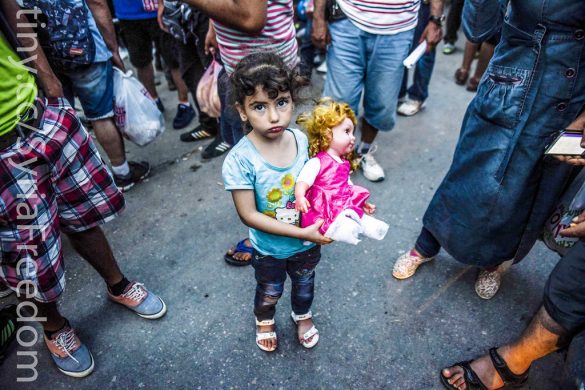AMMAN/DAMASCUS, 29 November, 2017 (UNICEF): Violence, lack of humanitarian access and sky-rocketing food prices have worsened malnutrition among young children in besieged East Ghouta. Nearly 400,000 people – half of them are estimated to be children – remain trapped in the area which has been under siege since mid-2013.
A recent survey of 27 locations in East Ghouta conducted in early November found that 11.9 per cent of children under five years old are acutely malnourished – the highest rate recorded in Syria since the beginning of the nearly seven-year conflict. A similar study in January this year showed that 2.1 per cent of children surveyed in East Ghouta suffered from acute malnutrition.
More than one third of children covered in the study are stunted, elevating their risk of delayed development, illness and death. Acute malnutrition rates are highest among very young children. Mothers of children under two years old have reportedly reduced or stopped breastfeeding altogether because of their own poor nutrition and the constant violence.
Bread price 85 times higher
The rapidly rising costs of basic foods and cooking supplies have made preparing a meal out of reach for most. The price of a basic portion of bread costs 85 times more in East Ghouta than in Damascus, located just 15 kilometres away. In August, bread was 24 times more expensive in East Ghouta than in Damascus. Today, a cylinder of cooking gas costs US$300 in East Ghouta compared to $44 in the capital.
“Children in East Ghouta are living in extremely harsh conditions. The siege must be lifted to provide them with the life-saving assistance they need now,” said Geert Cappelaere, UNICEF Regional Director for the Middle East and North Africa. “This drastic increase in malnutrition confirms – if any additional proof were needed – that escalating violence and the use of siege has devastated the health of children.”
Children’s access to health and nutrition services has been severely restricted by intense fighting in East Ghouta. The tightening siege has allowed few, if any aid convoys into the area, limiting the supply of essential nutritional supplements for children and nursing mothers.
“Children are the first to suffer from the dire consequences of siege. UNICEF calls for unimpeded, unconditional and sustained humanitarian access to children in Syria, regardless of their location,” said Cappelaere.














